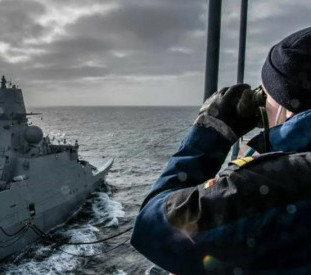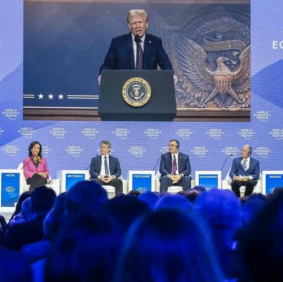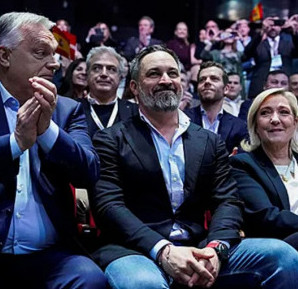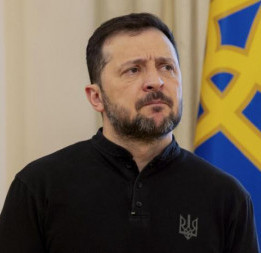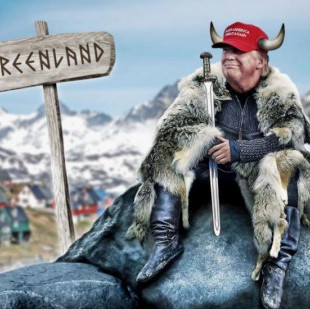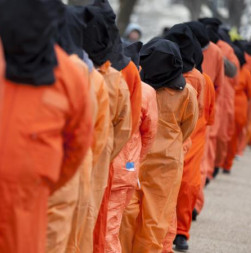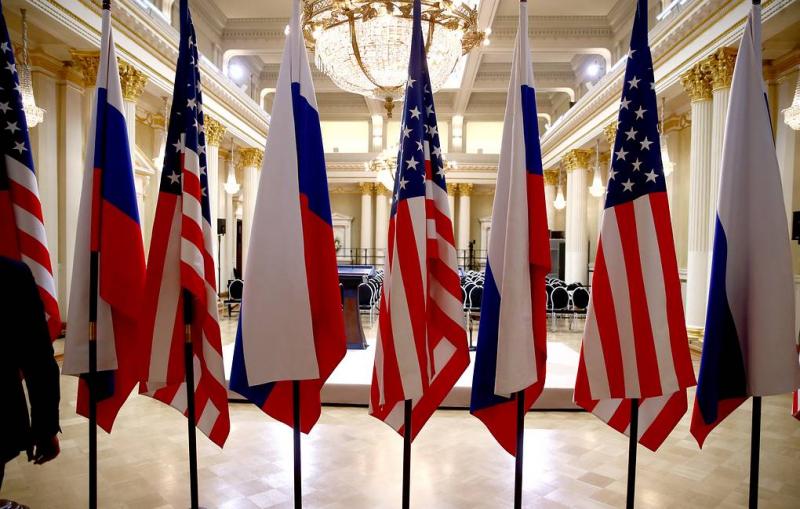
What happens next in Russia-US talks on Ukraine, how will Berlin’s policy shift after German elections, and Moscow expects Tehran’s crucial decision on the North-South Corridor. These stories topped the headlines in Monday’s newspapers across Russia, according to TASS news agency.
Media: What to expect of new phase of Russia-US interaction
The draft of the 2022 Istanbul agreements may be taken as a basis for the Ukrainian settlement which may occur rather swiftly, US Special Envoy to the Middle East Steve Witkoff told CNN on February 23.
Since 2022, the situation has changed, Dmitry Ofitserov-Belsky, associate professor at the Russian Academy of Sciences’ Institute of World Economy and International Relations (IMEMO RAS) told Vedomosti. If during the Istanbul talks, guarantees for Ukraine were taken into account, there were no unequivocal guarantees for Russia, he pointed out. "Most likely, in the new Russia-US talks, there will still be some deliberation and testing for red lines in order to develop a draft agreement satisfactory to all sides," the expert noted.
The US and Russia intend to resume discussions, Vladimir Vasilyev, senior research fellow at the Russian Academy of Sciences’ Institute for US and Canadian Studies, asserted. According to him, the earlier dialogue in Riyadh was testing the waters: Washington was trying to find out about Russia’s readiness to halt combat. "The US aims for the quickest end of the conflict, Russian forces continue to advance," the expert told Vedomosti. In his opinion, the US side may propose to stop and then implement collaborative economic projects.
"At this moment, we must not get euphoric and should realize that we are only at the beginning of a challenging and thorny path to peace, because parties of war are still very strong both in the US and in Europe," political scientist Edward Lozansky, president of the American University in Moscow, told Izvestia. "Nevertheless, at the US-Russia meeting in Riyadh, Saudi Arabia, held after the Munich Security Conference, even the New York Times had to admit that the US and Russia advanced to a dramatic reboot, having agreed to work together on halting combat in Ukraine, financial investments and restoring normal relations."
Given that Russia and the US have already achieved certain progress, the UK is unlikely to stay behind the common tendency and in any case would like to contribute to the process, said Vasily Klimov, a researcher at the Center for International Security at the Russian Academy of Sciences’ Institute of World Economy and International Relations.
"While France may insist on a certain viewpoint on the situation, the UK will be the first to join the US stance. Certainly, Europe is offended that Trump did not take into account its position on Ukraine and will try to insist on it, using it in trade disputes with the US. If, however, the Europeans do not adopt the US stance, it will be a cardinal shift in trans-Atlantic relations," he told Izvestia.
Simultaneously, a dispute between Trump and Zelensky is underway, accompanied by leaks from officials and the media on the "negotiations" around the US President’s proposal on Ukrainian natural resources, accusations of Zelensky not wanting to hold the election as well as his resulting unwillingness to cease combat.
The resource deal is part of the bargain on security guarantees, Ofitserov-Belsky told Vedomosti. In his opinion, as soon as US companies begin developing Ukrainian mineral resources, Washington will essentially "set up red lines" and will try to protect its investments. "Trump is pushing through the terms of the deal which would suit US interests but the financial aspect of the agreement is secondary," the expert added.
According to Ofitserov-Belsky, Zelensky's resistance and maneuvering with regard to the deal are triggered by his aspiration to receive security guarantees from the US, including personal ones. As soon as such guarantees are obtained, any obstacles to the deal will disappear, the expert thinks.
Izvestia: How will Berlin’s policy track change post-election
German Chancellor Olaf Scholz’s Social-Democrats suffered a crushing defeat at the February 23 parliamentary elections, having garnered only about 16% of the vote, according to preliminary data. The right-wing Alternative for Germany party came in with 20%, becoming the country’s second political force.
The victory, with about 30%, was secured by the CDU/CSU (Christian Democratic Union and Christian Social Union) bloc, led by Friedrich Merz, currently the main contender for the chancellor’s seat. He will also form the new ruling coalition. The expert community does not rule out that, as chancellor, the politician will try to find common ground with Washington and build dialogue with Moscow, taking into account the interests of business circles, impacted by anti-Russian sanctions.
"The Foreign Affairs Ministry, led by Annalena Baerbock and the Federal Ministry for Economic Affairs and Climate Action, led by Robert Habeck, have shown highly contradictory results of their work. It is unlikely that, for instance, the Christian Democrats will be ready to take on such reputational risks and work together with that party," Artyom Sokolov, a researcher at the European Studies Institute of the Moscow State Institute of International Relations, told Izvestia.
"Even though Merz was formed precisely within the framework of the trans-Atlantic paradigm, nevertheless, as a person who built his career surrounded by key representatives of the German economy, he understands the interest of German business circles and sees how industrial companies are suffering from anti-Russian sanctions and particularly from the rift in German-Russian ties in the energy sphere. In this sense, one cannot rule out progress in this sphere," Sokolov said.
"Merz will try to reorient the trans-Atlantic relations in such a way so that what Germany is ready to give corresponds with Trump’s needs. Being a lawyer, Merz worked for Germany’s big business, cooperated with US business and so will try to find common ground with Trump. They both know how to conclude deals and are somewhat similar in this sense. He will pursue a policy course within the framework of the shared trans-Atlantic vector and the easiest way to adjust it is during an in-person meeting with Trump," the expert concluded.
Izvestia: Russia awaits Iran’s key decision on North-South Transport Corridor
Moscow expects to receive shortly Iran’s schedule for the land buyout for the international North-South Transport Corridor, Russian Ambassador to the Islamic Republic Alexey Dedov told Izvestia. This is about a section of a road from Azerbaijan to Iran. It is not yet ready because it is passing through a privately-owned territory and this is currently one of the most sensitive issues for the full launch of the corridor. According to the diplomat, the submission of the schedule will bring clarity. Moscow and Tehran firmly intend to implement this strategic project, the envoy added.
"The North-South is above all a political project which will become Russia’s alternative route for entering international markets, to make it impossible to isolate it via sanctions. And Iran is precisely the country which has already had enough sanctions imposed on it so that it does not react to them anymore," Eastern studies expert Nikita Smagin told Izvestia.
"Turning into a transit hub will not only bring substantial revenues to Iran but will also strengthen its positions in the region and at international talks. Additionally, profits from the transit of goods may replace some oil revenues which will become an important step on the path to reducing the country’s economic dependency on oil," Lana Ravandi-Fadai, senior research fellow at the Institute of Oriental Studies of the Russian Academy of Sciences, told the newspaper.
Under the conditions of the West’s sanctions pressure, Russia is actively developing alternative supply routes, and the North-South Corridor plays a special role in this process.
"It is planned that after a section of the Rasht-Astara railroad is completed, a through railway corridor from Russia to Iran’s southern ports will be formed which will provide a direct route for Russian cargoes to the Persian Gulf. Goods from Russia and Central Asia will also receive a wide access to the Iranian ports in the Persian Gulf," Ravandi-Fadai added.
Nezavisimaya Gazeta: Syria regains access to oil and gas riches
Syrian Kurds have begun supplying oil and gas to the central government in Damascus. Control over natural resources, the considerable part of which is being located in Syria’s northeastern regions, used to be one of the instruments of pressure both by Kurdish commanders and their external sponsors such as the US. Thus, the oil issue became the main reason why during his first presidential term, Donald Trump decided to retain a limited military contingent in Syria. Currently, the new authorities in Damascus and the Kurds are apparently close to reaching a political compromise.
The signs that there is some progress in dialogue between the Syrian Democratic Forces (SDF) and Damascus emerged recently, after one of SDF commanders, Abu Omar al-Idlibi, said that Kurdish units are ready to enter the joint armed forces currently being created by the interim administration in Damascus. He also mentioned that foreign militants might leave the SDF, meaning members of the Kurdistan Workers' Party or PKK, a left-wing radical organization Turkey insists on dismantling.
However, Anton Mardasov, an expert on the Middle East, told Nezavisimaya Gazeta that al-Idlibi’s statement on integration so far does not mean that the negotiation process between the Trans-Euphrates region’s de-facto authorities and Damascus has been finalized. It merely "indicates an opportunity" amid recent talks between various Kurdish groups of influence.
During these consultations, an integration into Syria’s new national army was indeed discussed, the expert noted. However, differences of opinion were apparent even at the level of one influence group, which means that it will take time to produce a decision. The expert emphasized that the cohesive nature of the SDF as a military and political force has always been very relative.
"At the current stage, the temporary-permanent Syria’s government is refraining from any aggravating decisions on the northeastern territories," Mardasov stressed. "Above all, this is happening due to Damascus’ attempts to appear constructive in the eyes of international players and distance itself from the reputation of Turkey’s, which is interested in eliminating the SDF, ‘proxy force.'" Additionally, Damascus urgently needs to establish stable oil and gas supplies which are being produced in the Trans-Euphrates region," the expert concluded.
Kommersant: European stock funds attract record-high investments over geopolitical speculation
European stock funds have updated their record on attracting investment. Over the past week, global investors contributed over $4 billion, which is the highest since February 2022. Since the onset of Russia’s special military operation, the massive outflow of investments from European assets has begun and the stock funds have been sidelined until recently. However, since the beginning of talks between the US and Russia, the volume of net investment into such funds has reached $6.5 billion. Some investors are anticipating the improved economic situation in the EU while short sellers are betting on speculation about potential changes.
According to Artyom Mayorov, director of asset management at Ingosstrakh-Investments brokerage, settling the situation around Ukraine may open up Europe’s access to cheap Russian energy products and bring back the former manufacturing efficiency.
However, so far, this looks like a tactical game aiming to make quick cash on changing attitudes, experts noted. Especially, as Alyona Nikolayeva, a portfolio manager at Astero Falcon noted, with Europe, the situation reflects the current economic environment. The economic growth is weak, the industry is under pressure, the aging population is a burden on state budgets, and energy is still very expensive despite all initiatives on energy transition, she noted.
TASS is not responsible for the material quoted in these press reviews
